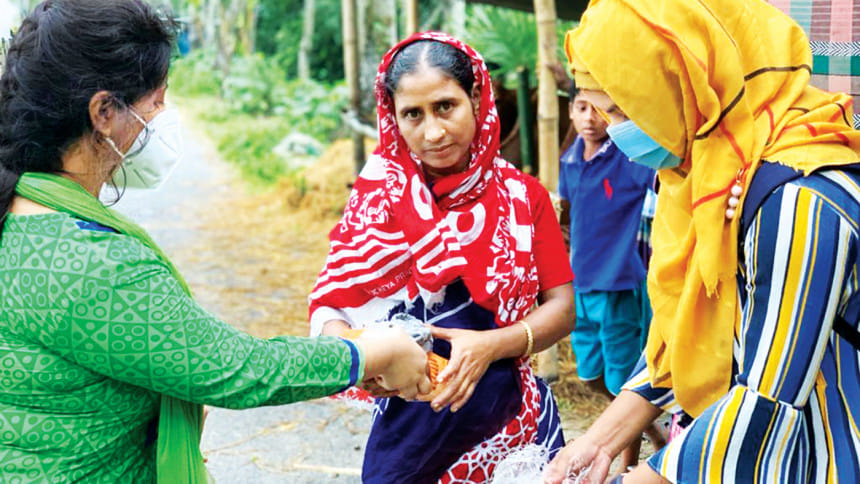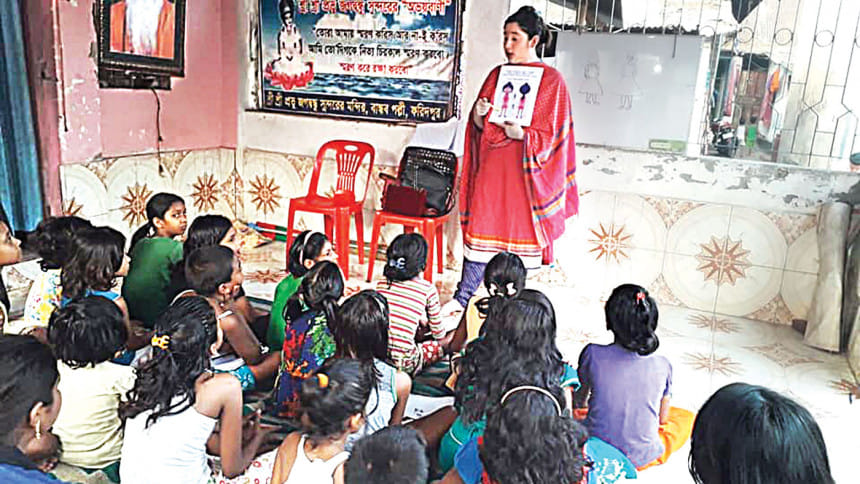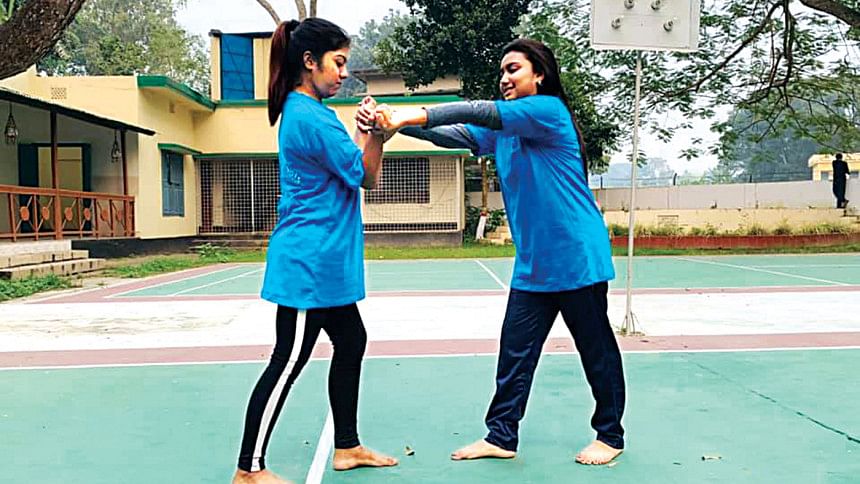Nandita Suraksha: Enabling women and children across the country

Nandita Suraksha started their journey in April 2019 as a non-profit voluntary organisation, with an aim to support underprivileged women and children across the country. The organisation intends to ensure gender equality through social and economic empowerment of women and girls, as well as the creation of safe spaces for them. Ahead of International Day of the Girl Child (October 11), we caught up with the team to find out more about their projects.
"Women in our country face threatening situations on a daily basis. We aim to protect them and build secure futures for them," shares Tahiyatul Jannat Remi, Founder and President, Nandita Suraksha. "We work as fearless soldiers to ensure and protect the safety rights of women and children." In 2018, Remi, a student of Govt Sarda Sundari Mahila College, established a free school, Hashimukh Pathshala, which is now run by Nandita Suraksha's team. 35 young children are currently enrolled in the free school.

The organisation has reached out to 9,000 children and 3,000 parents in several primary schools across the country, encouraging open discussions on the differences between good touch and bad touch, among other subjects. Along with discussions and awareness campaigns, Nandita Suraksha's team provided emergency menstruation kits to primary and secondary schools, reaching out to 30 educational institutes. "Nearly 86 percent of women and girls in our country still use cloths instead of sanitary napkins, and are unaware of the diseases a lack of proper menstrual hygiene can cause," adds Remi.
Nandita Suraksha's team also organises medical camps and conducts tree plantation drives with rural women and children. Their project, 'Pashe Ache Nanditara', extends support to women, children, elderly, disabled and transgender people in times of need.
"While studying child development, I had to visit different places for surveys. I've grown up listening to people's plights through Nandita Suraksha," says Nafisa Mim, a volunteer of the organisation. "We aim to connect with people and initiate impactful conversations."
In 2019, the organisation launched a self-defence course to equip women from all walks of life with basic self-defence skills at an affordable cost. At present, 50 women are enrolled in this course.
Nandita Shuroksha's team started their COVID-19 initiatives in March by providing necessary hygiene products to 500 people. They also provided menstrual kits to 500 women from underprivileged communities in Faridpur. During Ramadan, they provided iftar packets to 650 people in Faridpur, Jhalkathi and Barishal.
Recently in Faridpur, 30 unions were flooded. With the collapse of the dam in Sadipur, hundreds of villages were waterlogged. Nandita Suraksha's team, in collaboration with the district administration of Faridpur, recently provided menstrual kits and other necessary items to the flood affected families.
Though other relief programmes provide people in these areas with food and other items, sanitary napkins and other menstrual necessities are largely ignored. Under their initiative, 500 women in these waterlogged areas were provided with menstrual kits, including sanitary napkins, underpants and soaps, among other things. Recently, Amal Foundation partnered up with Nandita Suraksha to distribute sanitary napkins and other hygiene products in Faridpur.
Their team also conducts discussions on sexual harassment, menstrual hygiene, child marriage, online harassment and mental health issues, among other things, under their project, 'Aparajita Suraksha', with an aim to provide necessary information to women living in the most remote areas of every upazila. Amid the COVID-19 pandemic, the organisation launched an emergency helpline to provide assistance against sexual assault, child marriages and online harassment for women. The virtual platform will also provide necessary support with the help of the administrations in nine upazilas of the country.
With 40 active members across the country, Nandita Suraksha's team reached out to 18,000 women and children so far through their different projects. To support underprivileged communities, the organisation works mostly in remote villages, densely populated areas and slums. They recently expanded their initiatives in Dhaka as well, and are working to launch their projects in Rangamati and Rajbari. "We dream to provide a platform to young individuals, who dare to stand beside people in the face of adversities," concludes Remi.


 For all latest news, follow The Daily Star's Google News channel.
For all latest news, follow The Daily Star's Google News channel. 



Comments